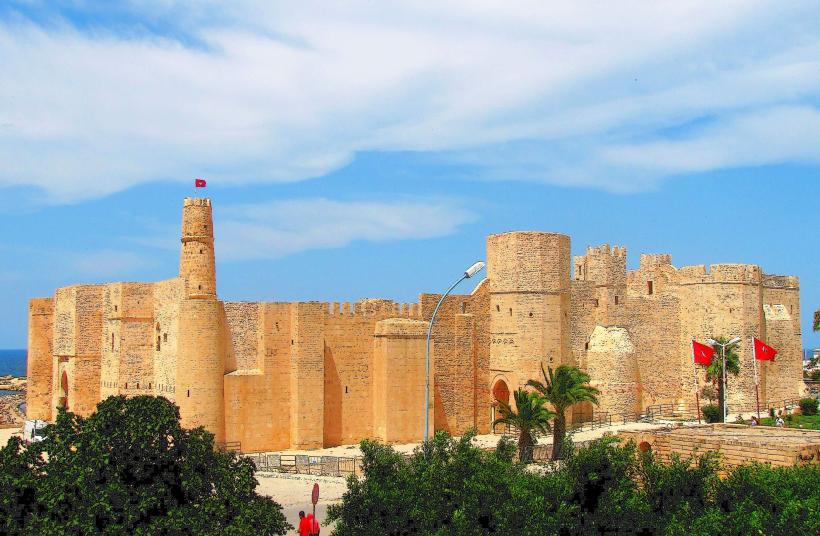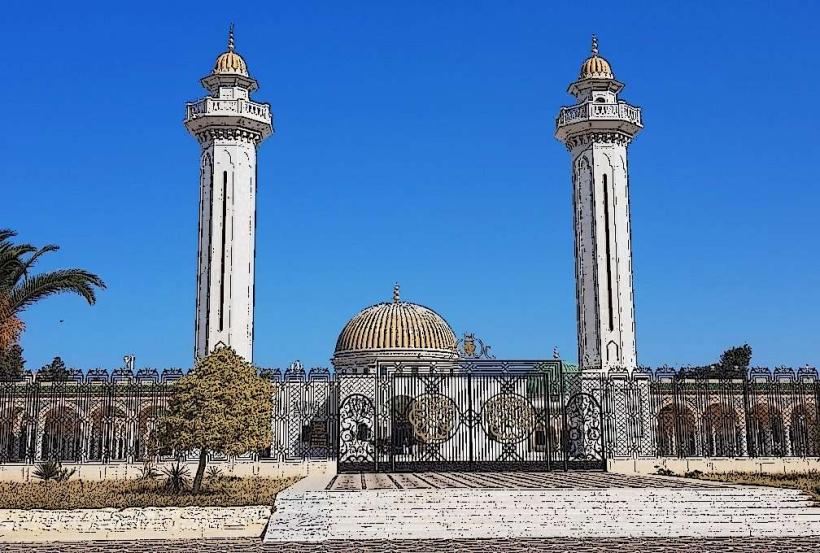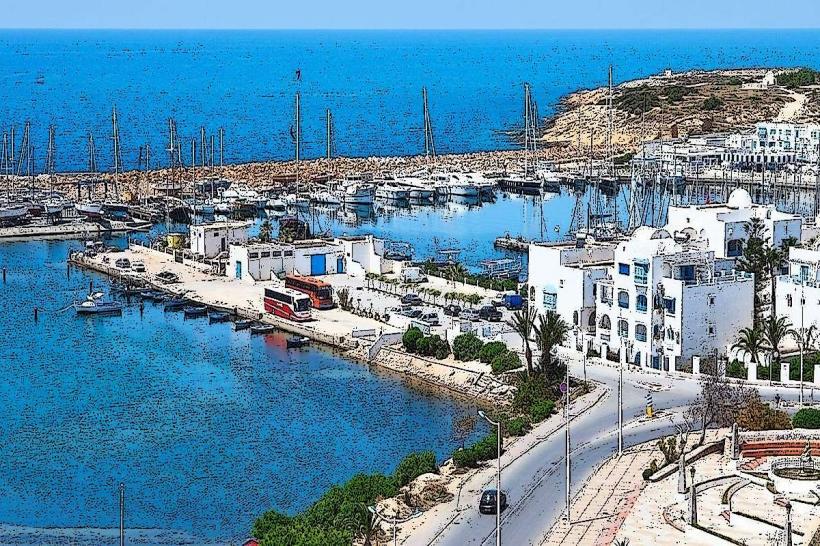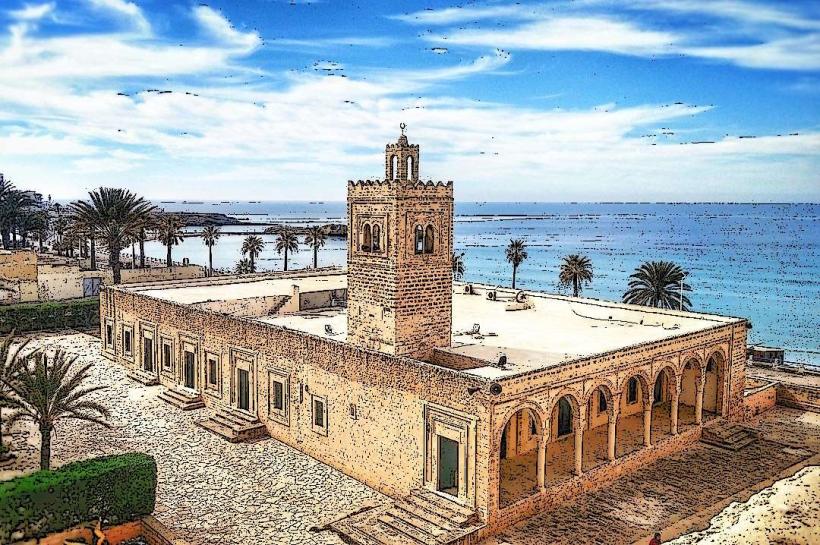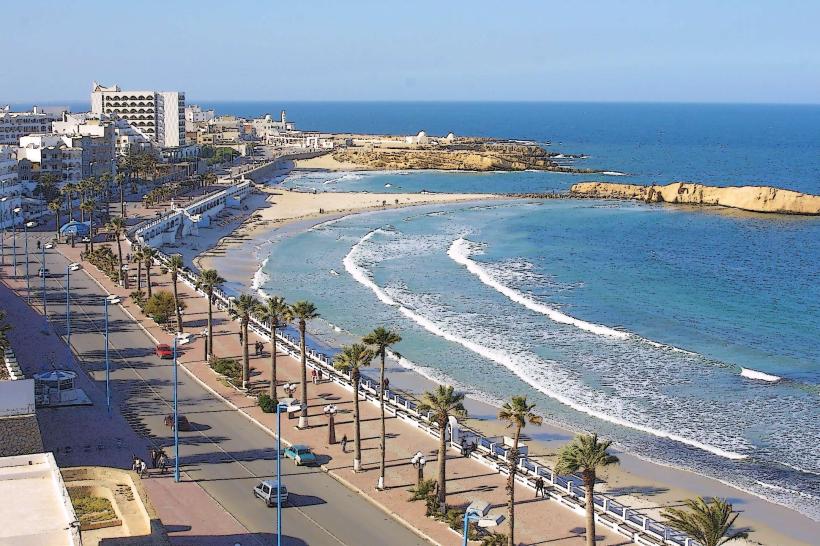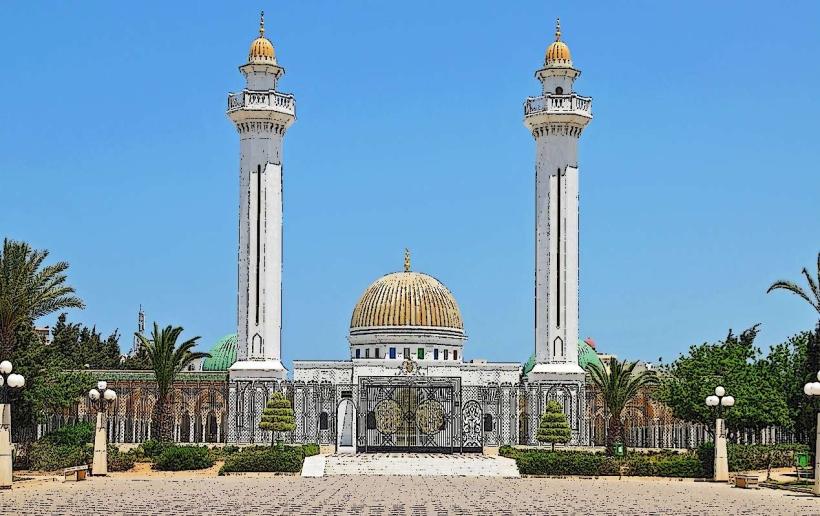Information
Landmark: Medina of MonastirCity: Monastir
Country: Tunisia
Continent: Africa
Medina of Monastir, Monastir, Tunisia, Africa
The Medina of Monastir, located in the coastal city of Monastir in eastern Tunisia, is a historic quarter that reflects centuries of architectural, cultural, and social evolution. Though smaller and less famous than the medinas of Tunis or Sousse, Monastir’s medina has unique character and charm rooted in the city's rich Islamic and Mediterranean heritage.
Historical Background
The Medina of Monastir has its origins in the early Islamic period, particularly during the Aghlabid dynasty in the 8th and 9th centuries. The city itself was built on the ruins of the ancient Roman city of Ruspina and developed significantly during the Islamic era due to its strategic coastal position. Unlike some other Tunisian medinas that were fully walled, Monastir’s medina was partially fortified, as the nearby Ribat of Monastir served both as a religious center and military fortress protecting the city.
Key Features of the Medina
1. Urban Layout
The Medina of Monastir is a maze of narrow, winding streets typical of Islamic cities. The street network was designed to provide shade and privacy, minimize dust and wind, and promote social interaction. Many houses have internal courtyards and few external windows, adhering to traditional Islamic architectural norms.
2. Architecture
The medina features:
Whitewashed buildings with blue or green doors and shutters, characteristic of coastal Tunisian towns.
Moorish and Andalusian elements, particularly in ornamental arches, latticework, and tiled doorways.
Modest mosques and zawiyas (religious schools or shrines) embedded within the urban fabric.
3. Markets (Souks)
Though not as large as the souks in larger cities, the Medina of Monastir has traditional markets selling:
Textiles and local fabrics
Handcrafted leather goods
Jewelry, particularly silver and coral pieces
Perfumes and oils
Local foods and sweets, including makroud and baklava
4. Religious and Historic Buildings
The medina is home to several small mosques and religious monuments, including:
The Ribat of Monastir, located at the medina’s edge, which is one of the oldest and best-preserved ribats in North Africa. Though technically outside the tight medina core, it historically formed part of the spiritual and defensive identity of the old city.
Mosques from the Hafsid and Ottoman periods, some of which were rebuilt or restored over time.
5. Craftsmanship
Traditional artisans such as tailors, weavers, and blacksmiths still work in the medina, although much of their output now caters to tourists. However, elements of genuine craftsmanship remain, especially in embroidery and handwoven fabrics.
Cultural Importance
The Medina of Monastir serves both as a living residential district and a symbol of the city’s historical continuity. It reflects centuries of urban life, religious devotion, and Mediterranean trade. It also plays a role during religious festivals and local holidays, during which parts of the medina become active with processions, music, and public gatherings.
Preservation and Modern Challenges
Like many historic quarters in Tunisia, the Medina of Monastir faces challenges:
Urban pressure from modern construction and tourism-related development
Neglect or degradation of historic homes and public spaces
Loss of traditional crafts due to commercial mass production
However, efforts have been made by local authorities and cultural preservation groups to conserve and rehabilitate parts of the medina, particularly around the ribat and souk areas.
Conclusion
The Medina of Monastir may not be the largest or most elaborate in Tunisia, but it is an authentic and atmospheric place where visitors can experience the quiet dignity of centuries-old Islamic urban life. Its combination of architectural heritage, local crafts, and proximity to major historical landmarks like the ribat and Bourguiba Mausoleum make it an important cultural asset in the city.

